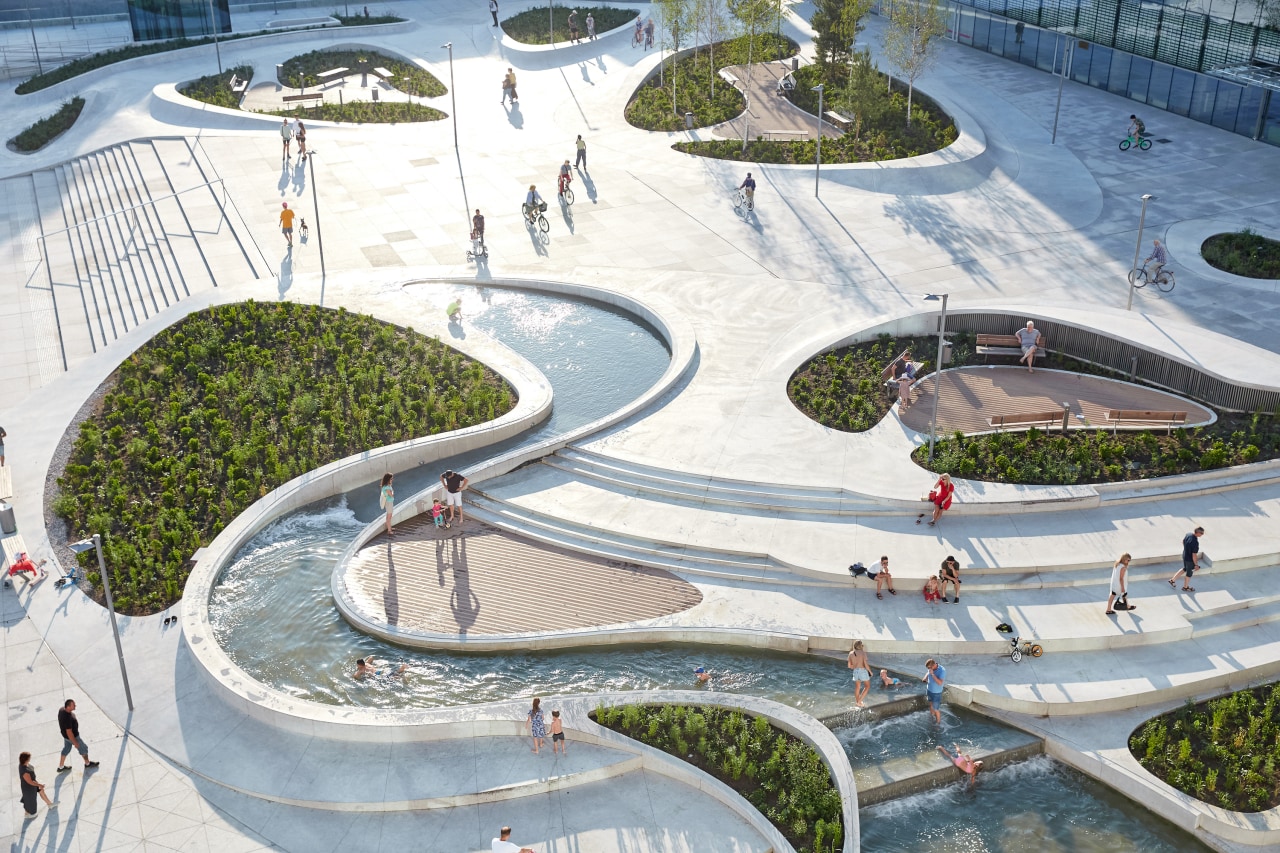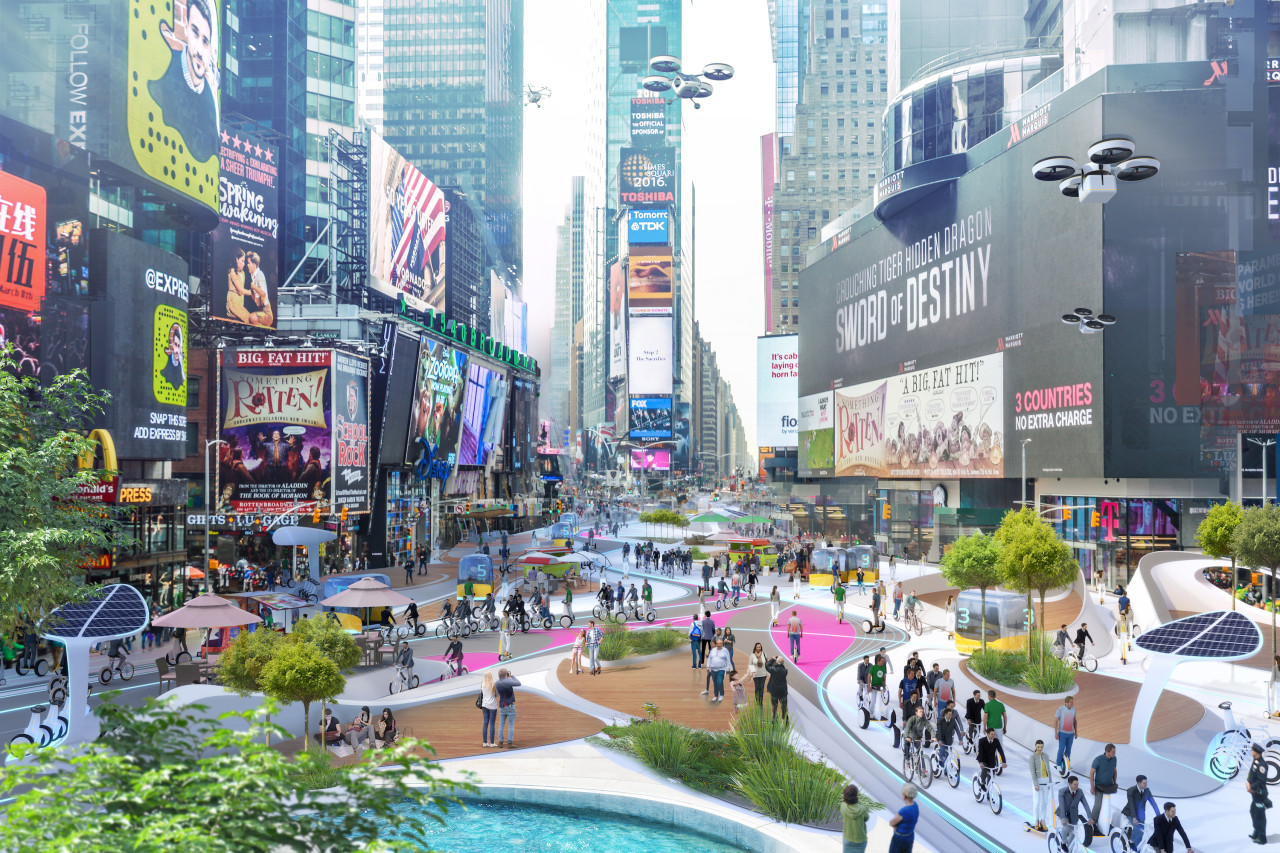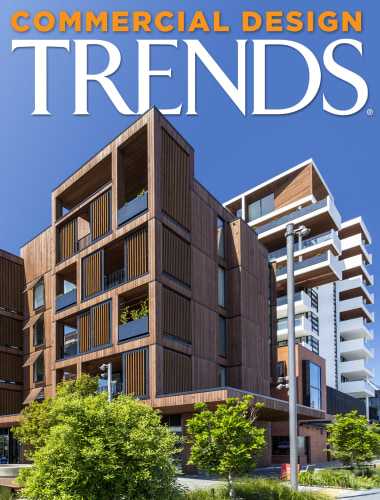Will Times Square look like this in the future?
The Covid virus has had many impacts on modern life, some here to stay. Here is one vision of the inner-city's future with New York's Time Square reimagined
Design concept by 3deluxe
From the architects:
Since it has become obvious that motor vehicles are set to gradually disappear from the cityscape, it is now time to give some thought to how road spaces might be redesigned in the future.
Right now, transitional measures are being implemented in a lot of cities with the aim being to revisit the spatial distribution of the road system in line with the social trends accelerated by the Covid pandemic.
By means of surface graphics, the existing space is being redistributed: less space for moving and parked vehicles and more space for pedestrians, cyclists, and scooters.
The next level will go beyond mere cosmetic adaptations to these valuable spaces, incorporating radical structural interventions in line with the new circumstances: sidewalks and roads as we know them will no longer exist.
Instead, the opportunity arises for a complete reformation of the surfaces between buildings, which will change the cityscape of the future fundamentally. In a design study, the architects at 3deluxe are attempting to present these new possibilities using the example of Times Square.
3deluxe's experiences in Lithuania
The V-Plaza project in Lithuania, the brainchild of 3deluxe that was inaugurated this year, demonstrates possible forms this can take.
The completion and opening of the plaza took place in the midst of the Covid pandemic in early summer, 2020.
The open design of the square, with interwoven zones for relaxation, communication and play, as well as areas for ways of getting around like bicycles, scooters, skates and skateboards, has been extremely well received by the local inhabitants – over the summer the plaza swiftly evolved into a vibrant, public living space for the city.

For the architects of 3deluxe, it was a successful project which explored the future of city spaces free of motor vehicles – spacious, inviting and attractive areas for the ever-larger number of users of environmentally friendly individual mobility options in a harmonious interplay with pedestrians and those enjoying a stroll or leisure time.
The future of the cityscape
So how might the cityscape look in future? The linearity of the classic road layout can be abandoned and replaced by organic, urban landscapes that offer new, interwoven spaces for pedestrians and modern forms of mobility.
There are dynamic thoroughfares allocated to soft mobility (bikes, scooters, skaters, inline skaters, walkers, runners, public e-transportation), and in between these, zones and isles with different offerings for city-dwellers out and about on foot.
These include communicative seating areas, spaces to work out or relax, play areas, water features, urban gardening, green zones, pop-up stages for cultural events, beer gardens, pop-up stores, charging stations for e-mobility, etc.
The road of the future will have landscaping elements: the urban landscape and gentle slopes break up the zones and skater-park-like terrain to give the various modes of transportation playful impetus time and again.
Former intersections could be the lively city squares of the future, hubs of city living into which the urban offering is condensed, with small "deceleration islands" for passers-by and "acceleration hubs" for those on the go, so they can surf their way speedily through the city.
In this way, the previous road surfaces that are so incompatible with human beings are given a new quality as places where city-dwellers spend time, closely intertwined with the new soft mobility.
Home kitchen bathroom commercial design
Commercial Design Trends Vol. 34/3C
While apartment living has always been prevalent in some cities, there are others where it is still a developing accommo...
Read More









